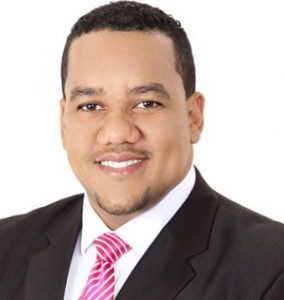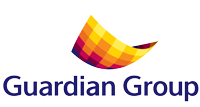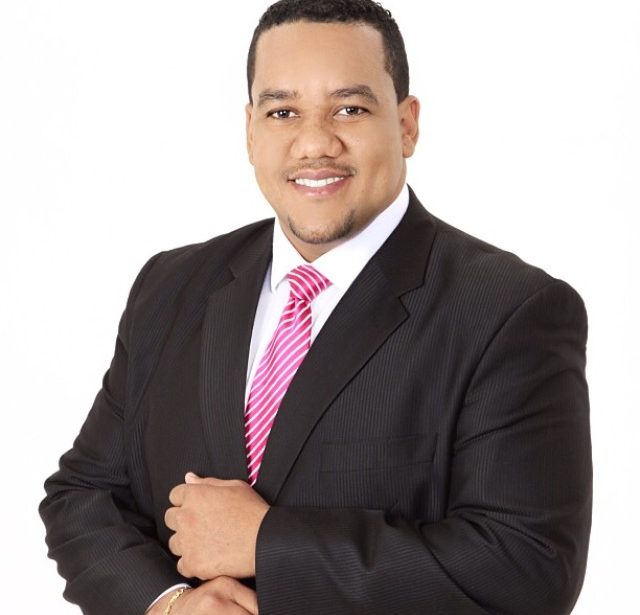“Imagine you go to a doctor for a headache, and he puts your leg in a cast… You can’t just ‘sell insurance’; you have to first understand your client’s financial needs.” – Calvin Mendez
This is the founding principle of Calvin Mendez’ coaching philosophy: teaching others to impart financial advice, rather than just recommending products.
Calvin Mendez is the Assistant Branch Manager of Guardian Group’s Dave McLeod Agency, the leading financial services agency in the Caribbean region.
A lifetime member of the Million Dollar Round Table (MDRT), the premier association of financial professionals worldwide; he also holds the titles of Chartered Insurance Agency Manager, Master Financial Advisor, and the internationally-recognised designation of Registered Financial Consultant, just to name a few.
A useful resource to manage their financesWith over 17 years experience in the financial services industry and numerous accolades of excellence under his belt, he feels honoured to be able to impart his wisdom and experience to the advisors under his wing — currently, a unit of 20 persons.
“You have to really understand your client, so that you can be a useful resource to manage their finances. You must also understand your market, your products, and most importantly — yourself,” he adds. “Once you believe in what you do, you will be able to serve others better, and success will follow.”
Humble Beginnings

Now a renowned and well-respected expert in the financial services industry, Calvin notes that his career is a far stretch from his upbringing in the village of Paramin in north-west Trinidad.
As a boy in the village, he helped his mother to sell the produce from her garden at the market, and worked as a ‘yard boy’ in the community. After leaving school, he worked at Jimmy Aboud The Textile King, and developed a reputation for having ‘an eye for fabric’, as his recommendations to clients resulted in profitable sales.
‘You are now a salesman.’“Then, one day, Mr. Aboud had a shipping container of bedroom slippers, and told me to go out onto Charlotte Street with a suitcase full of the slippers and sell to the stores. His son Gregory, in fact, gave me my first tie, which I put on to add to my ensemble of jeans and a white shirt… and I hit the streets,” he reminisces.
“By the time I returned, having sold a quarter of the stock, I was told: ‘You are now a salesman.’ ”
At the age of 22, Calvin scored the highest among his peers in the entry exam to join Colonial Life Insurance Company (CLICO). Based on the international standard at the time, the recommended agency age minimum was 25. His new employers accepted him with emphasis on warning about the likelihood of failure.
“But I thought to myself that there was more to life than what I had been doing thus far,” he says. “I was eager to go out there and earn a better living.”
More to life than what I had been doing thus farToo eager, perhaps — his first two years as an insurance salesman were two of the most miserable years of his life.
“Imagine not being able to buy groceries; my friends and family chiding me that I was wasting my time; my girlfriend at the time getting fed up of me never having any money; constant, constant rejection from clients who didn’t take me seriously… I didn’t understand the products and made a lot of mistakes at first,” he says, laughing.
His perseverance eventually paid off, as he began to make his way in the industry.
Life Evolution vs. ‘Insurance’
While many of us may immediately think of death benefits when one mentions the word ‘insurance’, Calvin notes that the industry on the whole has changed tremendously over the past few decades.
Concerned about building their net worth“With technological advances, we are living longer, even those with critical illnesses. Also, people are more financially-savvy, and are concerned about building their net worth,” he says. “As a result, the industry has had to adapt to be able to offer clients what they need.”
 One product offered by Guardian Group that speaks to this is the Life Evolution Series, which offers three distinct and separate benefit options:
One product offered by Guardian Group that speaks to this is the Life Evolution Series, which offers three distinct and separate benefit options:
- Liberator: Life Assurance – provides life insurance protection for the death of the Life Assured. Starting with a minimum of TT$50,000, this coverage can be adjusted as life changes dictate.
- Rejuvenator: Living Assurance – provides you with Living Assurance benefits if you are diagnosed with any of a range of Critical Illness medical conditions, or if you are determined to be permanently disabled. These conditions include:
- Heart Attack
- Stroke
- Coma
- Cancer
- Major burns
- Deafness
- Benign brain tumour
- Heart valve and structural surgery
- Major organ transplant
- Multiple Sclerosis
- Kidney failure
- Blindness
- Paralysis
- Loss of limbs/Speech
- Motor Neuron Disease
- Coronary Artery Disease Surgery
- Investor: Savings/Investments – offers the flexibility to increase the value of your savings and investments and to plan for the future. This can be used to accumulate funds for retirement, home purchase, mortgage reduction or education funding. Whether short- or long-term investments are preferred, various options are available through the LifeStar Fund, and you may also transfer money from one fund to the next under Lifestar. Regular premiums may also be supplemented by unscheduled lump sum premiums (once the amount is over $500).
“This is only one of many products offered by Guardian Group that features multiple benefits for a variety of needs,” adds Calvin. “Even this product, which is one of our flagship products, may not be ideal for everyone. It is up to your advisor to have that in-depth discussion with you to determine what you need, and how they can help you.”
The Meaning of Financial Security
Against the background of Guardian Group’s best offerings, Calvin maintains that financial security is a ‘moving target’, and it is ill-advised for someone to simply take out a policy and ignore their changing life situation.
One of his key initiatives is to promote education for companies and individuals, through financial planning sessions. Through these sessions, he aims to sensitise the public to the best methods for circumnavigating economic conditions to reap benefits for themselves, their families and their businesses.
Financial security means different things to different people“Financial security means different things to different people,” he notes.
“For one person, having a lot of money in the bank makes them financially secure, or having their house fully paid off. For another, financial security could mean maintaining the family’s living standards if the breadwinner dies; for yet another, it could be supporting one’s legacy by gifting each child with an endowment.”
With this in mind, he advises that there are four (4) cornerstones to Financial Security Planning:
- Family Security – the preservation and protection of one’s estate, to ensure that one’s family will be able to maintain the same standard of living in the event of an untimely death
- Retirement – being able to maintain one’s lifestyle in their golden years
- Health Care – critical illness coverage not only to take care of the sick person but to ensure financial needs for the family continue to be met if one is unable to work
- Liquidity – investments in a range of financial instruments such as mutual funds, real estate, and the stock market
“In terms of liquidity, I always recommend to my clients that there are two ways to make income, ‘You at Work’ or ‘Your Money at Work’; the latter is always easier,” says Calvin.
“Ideally, saving should be the main priority so you should save first and spend what is left. At least 10% of your earnings should go towards savings, and you should always maintain an emergency fund that equates to at least six (6) months of your current salary.”
Leading the Way
In looking to the future, Calvin sees himself as a ‘servant leader’, serving both his clients and his agents through mentoring and coaching. As a career path, the flexibility of the industry is a key attraction to prospective agents, but the road to success is not likely to be an easy one.
“It is a profession where numbers and service are the most important — there are no standard working hours, no clock-punching, no reporting of the minutiae of your work day,” he says.
People don’t just want a product; they want you to be of service to them“At the same time, you have to be producing. And to be producing, you have to be constantly building yourself, making yourself useful, understanding and learning from your seniors, and most importantly: networking. People don’t just want a product; they want you to be of service to them.”
Being of service is not something he takes lightly. He notes that he has often been the ‘matchmaker’ for clients, connecting one client who may require the business services of another.
“Through the relationships we build, people put their utmost faith and trust in our advice, even if the advice may not have to do with money and they just need me to recommend a good lawyer or doctor,” he states.
“This is the kind of genuine connection and trust that can only develop over time, and the kind of relationship that will ultimately lead to mutual success.”

